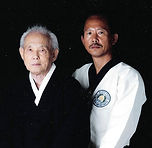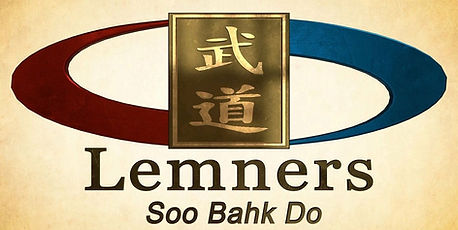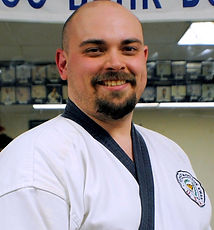The concept of Dodeok ( Do/Duk) Pt.2
- Steven Lemner
- Mar 20, 2022
- 3 min read

Part 2
The ten articles of faith:
1. Be loyal to your country
2. Be obedient to your parents
3. Be loving between husband and wife
4. Be cooperative between brothers and sisters
5. Be respectful to your elders
6. Be faithful to your teacher
7. Be faithful to your friends
8. Face conflict with justice and honor
9. Never retreat in battle
10. Always finish what you start
The ten articles of faith are the moral compass of our relationship with three areas. (Duk). First our direct family, second our close relationships that surround us, and third our social circle.
Background:
In a structured society, laws are created to bring about order, keep the peace, and protect the individual members. In a perfect society this would not be necessary because its members would share a common set of guiding principles and ideals. Throughout history specialized groups have been formed whose membership was carefully selected and trained to ensure that they possessed the right character to uphold those ideals in service to the ruler and community as a whole.
In Korea one such group was the Hwa Rang (Flowering Youth), an elite warrior class created in Korea during the Silla Dynasty around the 6th century AD. The institution they formed was the Hwa Rang Do. They were generally young and well educated, coming from the noble class and with good moral character. As Hwa Rang they received instruction in literature and the fine arts and were taught the art of warfare. They were also given a code of ethics that were divided into five doctrines and nine virtues for correct living called Hwa Rang Do O Kae and Hwa Rang Do Kyo Hoon.
The founder Hwang Kee felt this code of moral conduct connected the Korean people to their history and martial development. He adopted the five doctrines and expanded them into the Ten Articles of Faith that we train by. He also developed them into order that was in harmony with the laws of nature, the “Do”.
Starting with the individual and our relationship within our personal family.
The first being the collective group:
1. Be loyal to your country
Then our immediate family:
Be obedient to your parents
Be loving between husband and wife
Be cooperative between brothers and sisters
Our direct family supports each other in the common goal for the welfare of all. If we also look at it in the terms of a Dojang we can see the relationship.
The Parents: (instructor) and the brothers and sisters (students). They learn from them and are guided in their growth. There are times when families don’t agree on everything, however if they maintain the key words, loyal, obedient, loving, cooperative it helps to create harmony. The umyong of both young and old, parent and child, brother and sister. Within this lay the opposite forces working to balance. This “Do” is achieved by the “Doek”.
Following the structural format the next three relate to those that surround the family.
5. Be respectful to your elders
6. Be faithful to your teacher
7. Be faithful to your friends
Our elders, grandparents, teachers, aunts, uncles all play a role in our growth. In the martial example of our heritage having the founder plant the seeds to be passed on through the Kwan Jang Nim, to Sa Bom’s, to Kyo-sa’s, Dans, to Gups. Each is dependent on each other for growth and support. An instructor can not teach without students to be able share the art with and in turn students cannot learn with out an instructor and knowledge of their past. This creates a natural balance where both can grow. Our friendships that we create have great value both in and out of the dojang. School friends from our past may have had a big impact on us. Our martial classmates that we share training with, testing, and common challenges with, hold great memories a special bond. We support each other in times of need.
The last three articles relate to our perseverance as instructors, and students to hold true to the values this helps create Dodeok.
8. Face conflict with justice and honor
9. Never retreat in battle
10. Always finish what you start
These concepts have three important words that guide us. Face conflict, never retreat, and always finish what you start. Within a family or Dojang these are the traits needed in difficult times that have to be faced. The “Do” fluxes from good to bad and reverse, so having the tools, support and understanding that this is part of the natural laws helps up to prepare and adapt. Essential traits of a Moodoin.






























Comments